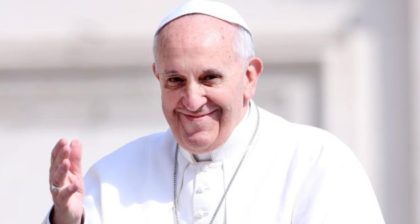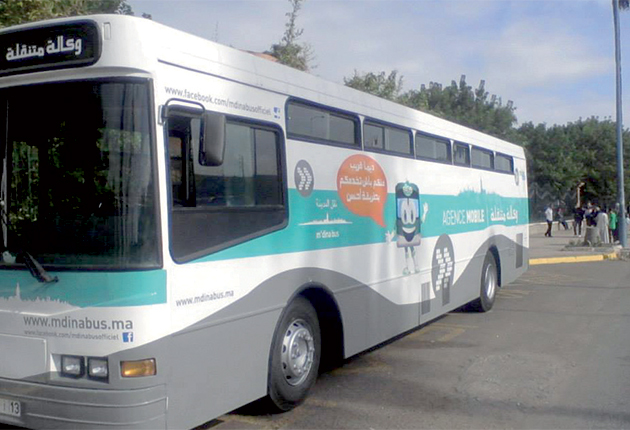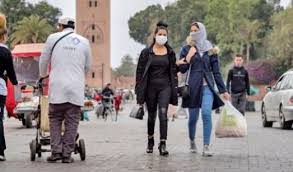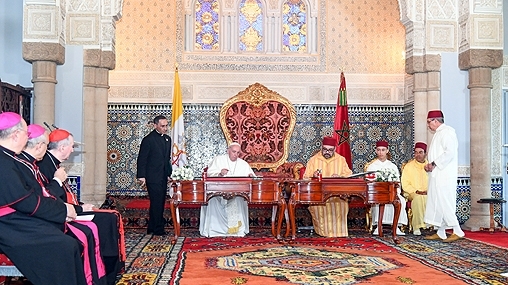 Pope Francis will pay a visit to Morocco on March 30-31 during which he will meet King Mohammed VI, visit many churches and meet migrants.
Pope Francis will pay a visit to Morocco on March 30-31 during which he will meet King Mohammed VI, visit many churches and meet migrants.
The visit comes at the invitation from King Mohammed VI, Commander of the Faithful.
This is the second time a Pope visits the majority-Muslim North African country since 1985.
Morocco stands out in the region as a country where Muslims, Jews and Christians are free to practice their faith unrestricted.
This is a “chance to promote inter-religious dialogue and advocate understanding between the faithful of the religions as well as the values of peace and tolerance,” said a priest who was presenting the agenda of the visit at a news conference in Casablanca.
One of the main highlights of the trip to Rabat will be a direct meeting with the Moroccan people from the yard of Hassan mosque where the Pope will address the crowds before standing for a moment of silent contemplation at the grave of late Kings Hassan II and his father Mohammed V.
A visit to the Mohammed VI Institute for the Training of Imams for meetings with Islamic counsellors and imams is also on the Pope’s agenda.
The Pope will also show support to charities, including Caritas, which has been lending support to migrants mostly from Sub-Saharan Africa.
According to archbishops of Morocco, there are some 30,000 Catholics in Morocco most of whom from Sub-Saharan Africa.
The Pope will also hold a prayer at a covered stadium in Rabat, which will be broadcasted live across the globe.
Relatedly, Director General of the Rabat-based Islamic Educational, Scientific and Cultural Organization (ISESCO) Abdulaziz Othman Altwaijri described the visit of Pope Francis to Morocco as an important historic event with a deep meaning.
Morocco, an ISESCO member, is a country where tolerance and respect for religious and cultural diversity prevail, he said in a statement.
This visit comes in a context marked by rapid mutations and the succession of regional and international events that threaten world peace and security and hamper international efforts to foster dialogue between cultures, alliance between civilizations, coexistence among believers and the promotion of the values of tolerance and mutual respect, Othman Altwaijri added.
The ISESCO Chief underlined that cooperation among the followers of different religions is needed to strengthen the bases of world peace and security and to fight religious hatred and extremism.



